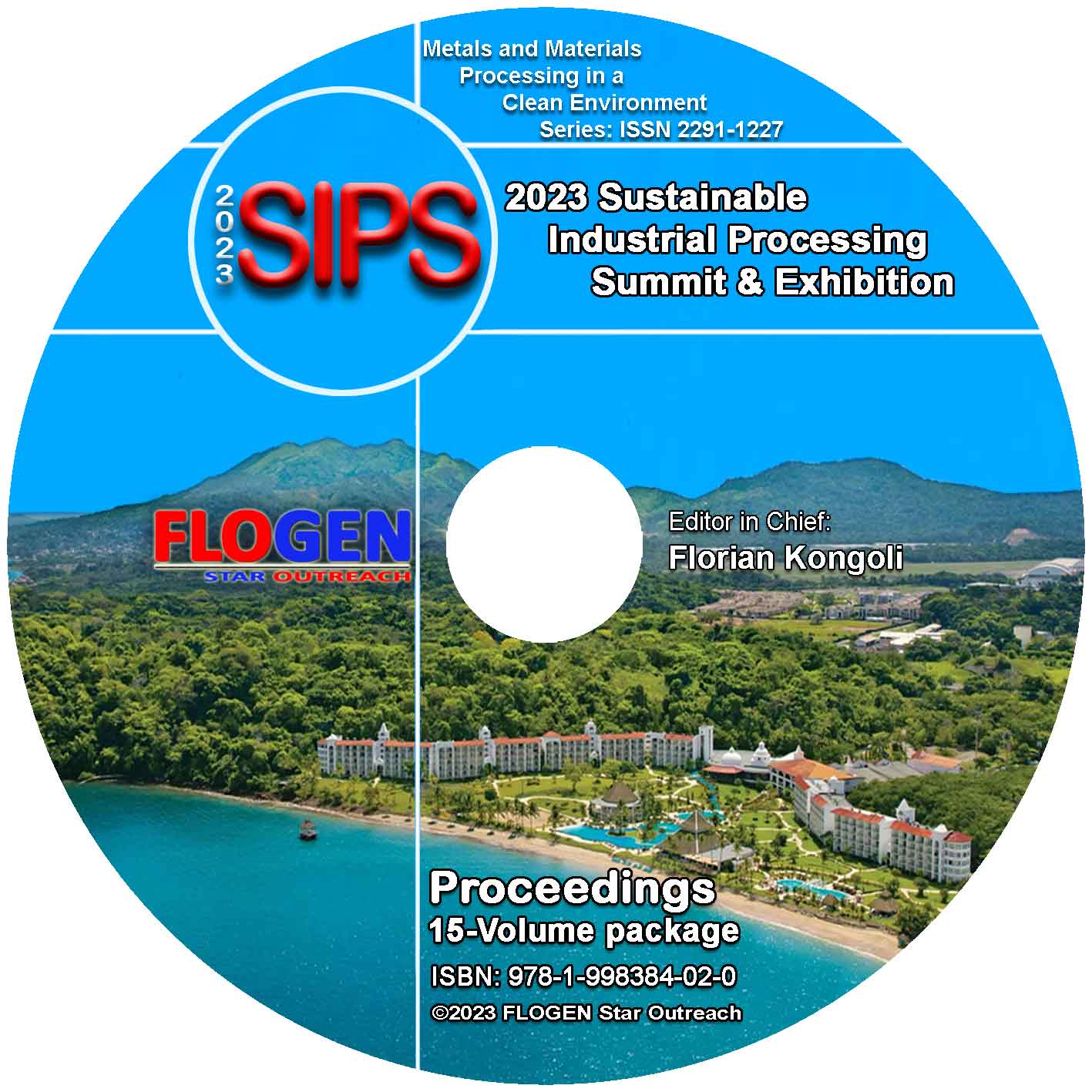2023-Sustainable Industrial Processing Summit
SIPS2023 Volume 10. Torem Intl. Symp/ Mineral Processing
| Editors: | F. Kongoli, G. N. Anastassakis, A. Abhilash, H. R. Kota, A. G. Merma, E. Souza, C.H. Sampaio, R. Souza, M.M. Vellasco, F. Zeballos, J. Sokolovic |
| Publisher: | Flogen Star OUTREACH |
| Publication date: | 21 December 2023 |
| Pages: | 142 pages |
| ISBN: | 978-1-989820-90-2 (CD) |
| ISSN: | 2291-1227 (Metals and Materials Processing in a Clean Environment Series) |

CD shopping page
THE CREATION OF A CLIMATE CLUB FOR A SUSTAINABLE ECONOMIC FUTURE
Rafael Leal-Arcas1;1ALFAISAL UNIVERSITY, Riyadh, Saudi Arabia;
Type of Paper: Regular
Id Paper: 316
Topic: 5
Abstract:
This paper asks two fundamental questions: 1) How can we have international cooperation on climate mitigation in a world of geo-political confrontation? 2) Is the impact of the international trade system on the environment only negative?
By doing so, the paper takes a comprehensive approach over how the trading system can help mitigate climate change and enhance sustainable energy. The paper brings together a top-down and bottom-up approach to the governance of sustainability. Furthermore, it analyzes two of the most relevant global regulatory trends in recent international trade agreements, namely climate change and sustainable energy.
The paper takes the novel approach of bringing together law, international political economy (IPE) and international relations (IR) to explain sustainable energy as an academic discipline. It is interdisciplinary and inter-sectoral, combining an analysis of international trade and sustainable energy from the perspectives of law, IPE, and IR—an approach that makes the paper ground-breaking and unconventional. It applies methods of legal analysis, namely a comprehensive analysis of treaties, case law, and academic writings from scholars as well as literature from other social science disciplines, such as IR and IPE, to help explore the challenges addressed.
This paper challenges the view that trade’s only impact on the environment is negative. It takes the unconventional view that the trading system goes beyond benefiting the economy and society in that it can also contribute to environmental protection, with a specific focus on decarbonization. In this sense, this paper proposes a paradigm shift in how we approach trade and develops a new theory based on the triple benefit of trade. This paper incorporates the current trend of bottom-up, rather than top-down, solutions to today’s global challenges. It:Â
• Investigates how trade agreements may be more effective legal instruments than environmental agreements for environmental-protection purposes—a possibility that is both counter-intuitive and surprising;
• Identifies opportunities to promote sustainable energy and environmental protection in future trade agreements; and
• Explores the potential role of citizens in trade policy the same way prosumers are the new actors on the energy market towards the achievement of energy transition via energy decentralization and democratization. This approach shifts the paradigm from a top-down to a bottom-up perspective in sustainability governance.